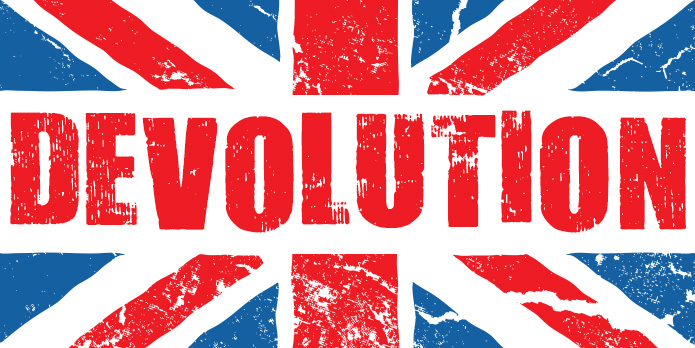
English votes for English laws
The West Lothian Question in which English MPs are excluded from voting on issues devolved to Scotland, Wales and Northern Ireland, while MPs in devolved nations can still vote on policies that only affect England, has been controversial ever since the phrase was first coined in Parliament by the Labour MP for West Lothian Tam Dalyell in 1977.
Whereas Scotland has its own Parliament, in which only its members can vote on legislation regarding health, education and transport in Scotland, legislation affecting only England is scrutinised and voted on in the Houses of Parliament by MPs from across the United Kingdom.
The political heat surrounding the West Lothian Question has recently become even greater after the main Westminster parties made a last ditch pledge to devolve further powers to Scotland and help swing the Scottish independence referendum towards a ‘No’ vote.
Since then, MPs from all parties have demanded that the government finally finds an answer to the Question, as Scottish MSPs are set for more devolved powers, which would lead to further widening in the perceived systemic unfairness between Scotland and England. The government’s proposals to resolve this have this week (16th December 2014) been unveiled by the leader of the House of Commons, William Hague.
The options for “English votes for English laws”
The first option would change the legislative process so that legislation relating only to England should only be considered by MPs from England. This option is the most radical as it would completely bar Scottish MPs from any sort of role in English and bills. Laws regarding England would only be scrutinised and voted on by English MPs.
Under the second option, bills relating to England would only involve MPs from those nations in the amendment stage of the legislation process. All MPs could take part in the debate on the main principles of the bill and the final vote, but only English MPs would be able to take part in the committee and report stages where bills are considered in detail and where amendments are proposed. MPs representing constituencies where the legislation impacts would have the decisive say over its content.
The third option would involve granting English MPs a veto at committee stage over some legislation. This would mean that most of the legislative process is the same but the committee stages of English bills would only be dealt with by English MPs. An English ‘Grand Committee’ – made up of MPs from different parties in proportion to the number of seats each party has in the House – would vote on whether to consent or veto a bill, or parts of it. A bill could not pass to a third reading, where it is debated for the last time after amendments have been considered, without the consent of the English MPs.
The fourth option is the Liberal Democrat proposal for solving the English votes for English laws problem. They call this option ‘fair English votes for English laws’, because the proposed English Grand Committee would be reflective of votes cast at the general election, rather than seats won. This English Grand Committee would scrutinise and veto legislation before the third reading.
Going forward
Constitutional issues are rarely decisive issues in general elections, but all parties have recognised that responding to the issue of English votes for English laws is a popular step for English voters. The Labour Party has come up with its own proposals, a more modest version of option three, in which there is a committee stage for only English MPs to scrutinise legislation, but without them having veto power over legislation.
With the coalition partners divided over the way forward and Labour opposed to Conservative proposals, it is unlikely there will be any progress until after the general election. However, given the scale and complexity of any of the options for addressing the West Lothian Question, we shall have to wait and see if the next government has the necessary political will to tackle it once and for all, kick it into the legislative long grass, or merely tinker with the status quo.
Freshwater’s Public Affairs division provides specialist political communications and intelligence for a client base across the transport, planning and infrastructure and energy sectors. Whether you need campaign advice, crisis communications support, stakeholder engagement guidance or are interested in registering for our daily and weekly parliamentary and media monitoring reports, feel free to contact us on 0207 067 1595.
